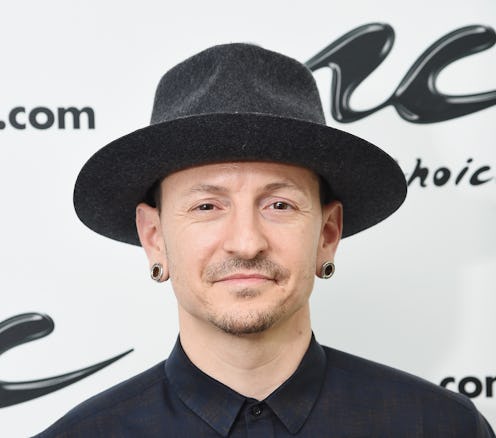
The news that Linkin Park lead singer Chester Bennington died, reportedly by suicide, on July 20 is upsetting enough on its own. But there's another aspect to his death that makes the news all the more intensely sad. Bennington was good friends with fellow musician Chris Cornell, who died by suicide in May, and Bennington's death occurred on what would have been Cornell's 53rd birthday. Cornell's cause of death was determined to be by hanging. So far, there has been no statement or confirmation that Bennington intentionally killed himself on his friend's birthday, but the fact that the two were friends makes the connection poignant nonetheless.
As TMZ first reported, Bennington's body was found on Thursday morning at a private residence in Palos Verdes Estates in Los Angeles County. Before their deaths, Bennington and Cornell had worked together on Linkin Park's Projekt Revolution tour in 2008, and nine years ago to the day, Bennington led the crowd in singing "Happy Birthday" to the Soundgarden and Audioslave frontman. Both men had previously battled drug and alcohol abuse, which they were both open about.
After Cornell died, Bennington wrote a touching tribute that he shared on his Twitter account, thanking Cornell for allowing him to be a part of his life and praying that his friend would "find peace in the next life."
With his band Linkin Park, Bennington played tributes to Cornell following his death. They played "One More Light" on Jimmy Kimmel Live in honor of him.
And Bennington sang Leonard Cohen's "Hallelujah" at Cornell's funeral on May 26.
Fans may never know for certain if Bennington passing away on Cornell's birthday was anything more than a coincidence, but unfortunately, a loved one dying of suicide can increase the chance that a friend or family member will attempt suicide themselves. A report from the University College London noted that people grieving the death of a loved one were 65 percent more likely to attempt suicide if the loved one had died by suicide rather than of natural causes.
But regardless of the extent of the connection, Bennington dying on what would have been Cornell's birthday, only two months after his friend died, is overwhelmingly tragic.